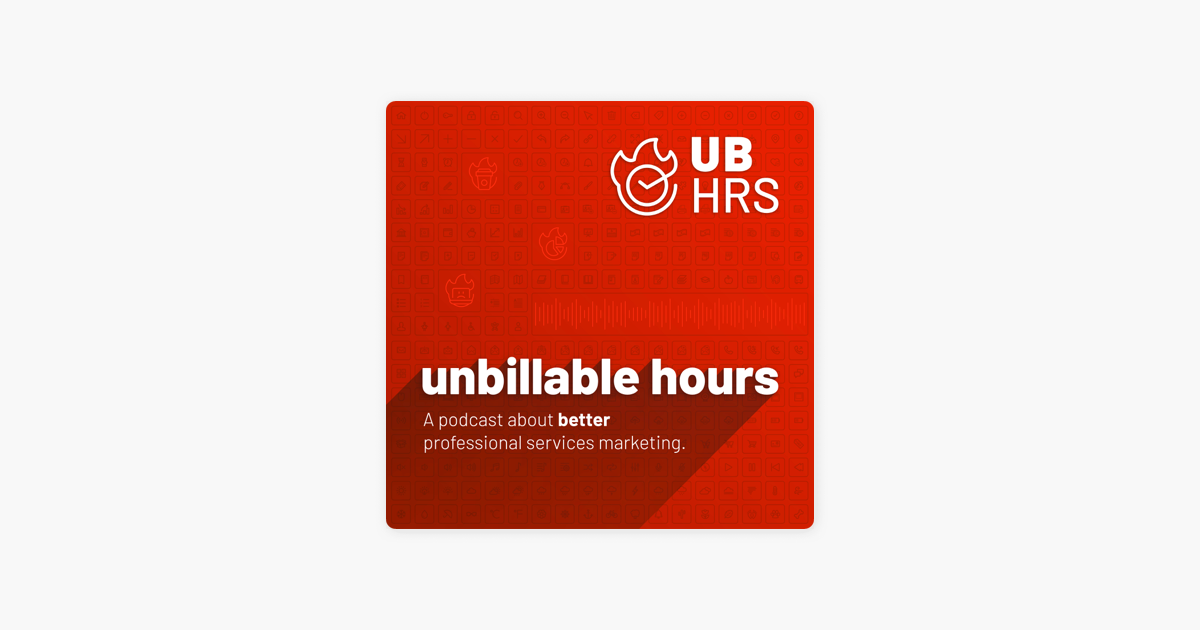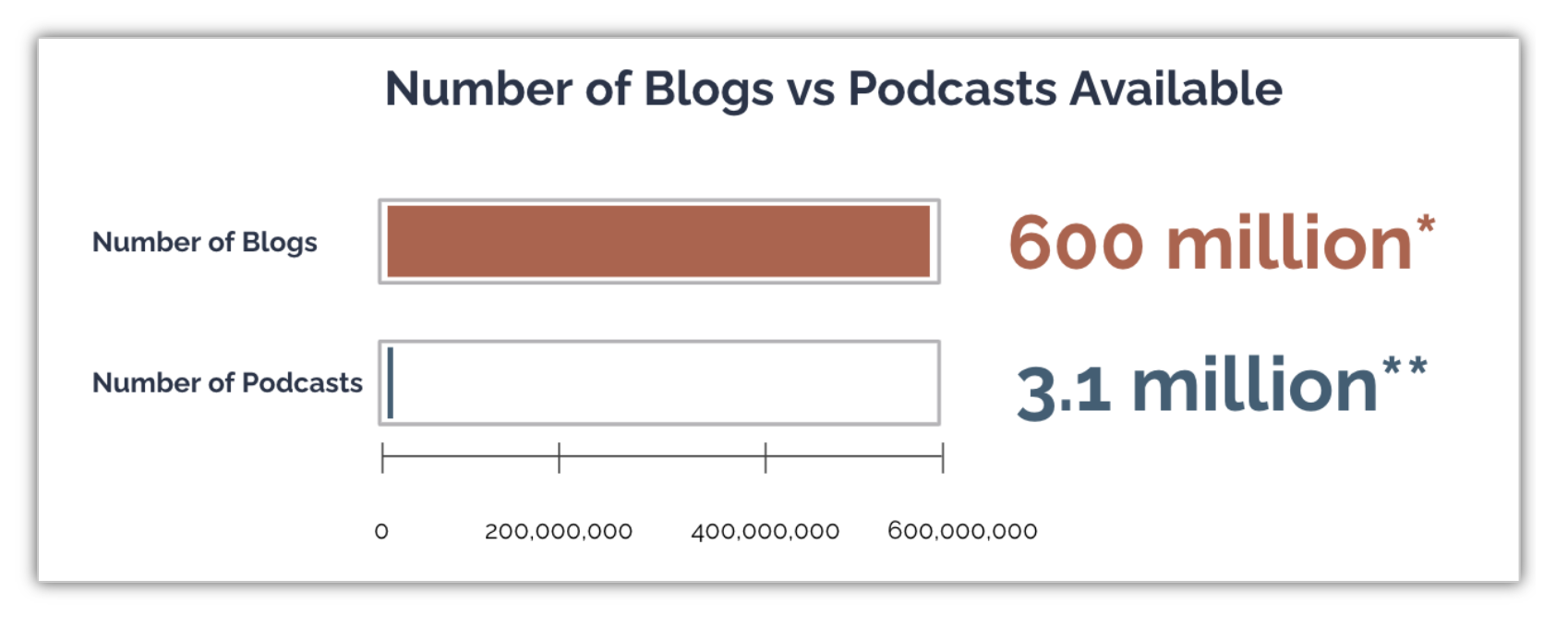Unbillable Hours: How a Minimum Viable Podcast Can Have a Major Business Impact
Start small, then grow. If you’re considering a podcast launch, it doesn’t have to be a well-oiled media and marketing machine right out of the gate. Most shows take time to develop, evolve, and for the hosts to get their sea legs. For firms or experts who are able to invest 1-2 hours each week, a minimum viable podcast might be the perfect solution.
This was the case for Florian “Flo” Heinrichs and Ash Mohd, co-hosts of the unbillable hours podcast. What started out as a hobby has turned into an efficiency unlock for Flo as he builds his firm, client friendly. Listen to my conversation with Flo on Podcasting in Professional Services:
Unbillable Hours: A Podcast About Better Professional Services Marketing
The Unbillable Hours podcast started out as informal venting sessions between co-host Florian Heinrichs and a colleague, Ash Mohd, at Accenture. At first, it was a way to blow off steam about the various problems and frustrations they faced in their work consulting professional services companies.
“There were some questions we had in the day to day,” said Florian, describing the origin of unbillable hours. “We would take that and we would riff about it. And once we had what we felt was the beginning of a good enough answer, we just hit record. And for some reason, people liked it well enough.“
This approach using a minimum viable podcast worked well for Ash and Flo, spending only 1-2 hours each week on the show. But once the pandemic hit, the pair realized these discussions could become something more valuable…
Organizing his thoughts in order to record has provided Florian significant professional development benefits. Coming up with topics and having regular discussions pushed his thinking and strengthened his critical analysis skills. It also helped him identify patterns and develop intellectual property around the business problems they explore on the show.
The show blends a mix of interview episodes with conversations between Ash and Flo. “For special topics, we try to get a good mix of sort of practice leaders from various firms and then people who are in the trenches of the various marketing pieces of the game.” said Florian, describing the perspectives he likes to have on the show.
According to Florian, podcasting has been an efficient, low-cost way to create educational content for clients. By sharing their expertise and perspectives, Ash and Flo have positioned themselves as thought leaders and media personalities. Unbillable Hours gives listeners insights into new and unique ways to approach challenges, building trust with Ash, Flo, and their guests.
Florian shared that the podcast has tangibly benefited his career by keeping him on his toes. Preparing for episodes forces him to examine issues from different angles and evolves his thinking over time. It provides a cadence for improving his critical thinking abilities.
The podcast has also strengthened Florian's connections with clients. When clients hear Florian share his experience and insights on Unbillable Hours, they gain more confidence in him and his firm. It shows that he is committed to continuous learning and development.
Launching a Minimum Viable Podcast
If you want the bare minimum, all you really need to launch a podcast is artwork, an audio file, and a hosting platform like Buzzsprout or Libsyn. Whether you work with a producer or want to do it yourself, I recommend a podcast editing workflow that fits your schedule. Flo shared his perspective on how a busy consultant or expert can find time for a minimum viable podcast.
“I would encourage people to give it a shot,” said Flo. “You can build a massive editorial calendar, have all kinds of planning, preschedule everything… Or, you can go every two weeks, as we do, and we are owning the fact that it's a bit of a hobby show, right? Or a side gig thing. So we're not too professional. I think that's a good lesson…you can absolutely give this podcast thing a try, especially if you're in professional services.”
Flo went on to explain the production workflow he and Ash use to produce episodes for unbillable hours, which only requires 1 hour on the books per episode—perfect for time-crunched experts.
“Episodes are 30 minutes, and a good production flow might be I write Ash something on Tuesday or he writes me something on Wednesday and [ask ourselves], do we want to discuss this? And then we think about it on Thursday, and use the first 30 minutes of the recording to structure the episode. Right. So effectively, what it takes out of sort of active work on the diary in the week is the hour on Friday, which if you think about billable hours and experts having no time, that's a very lean setup you can run.”
Should More Firms Launch a Business Podcast?
Forian and I may be a bit biased, but hear us out. Here are a few reasons why there is an opportunity for more professional services firms to launch a business podcast.
There are 200x more blogs than podcasts
When most professional services firms try content marketing, the first thing they usually do is write a blog post. Blogging is an integral part of a firm marketing strategy (you’re reading one right now!) but it’s also incredibly competitive. When you compare the two content formats, there are nearly 200X more blogs available on the internet than podcasts.
Podcasts provide endless content
Florian—who works closely with professional services firms on a day-to-day basis—would not hesitate to recommend a podcast as a central part of a firm marketing strategy.
“If I had to start in-house again and review programs or start to build one out, podcasts would be the first thing I do. I wouldn't even do a blog. The podcast would be the first thing I do. And then everything could come from that.”
Podcasts are unique in that the format gives you many multiples of content from a single source, as Florian alluded to. Below is a simple illustration to show how a podcast can fuel audio, video, and text-based content.
It doesn’t need to be an interview show
An interview series is a popular show format, but reaching out to secure guests, coordinating schedules, and managing technical issues can sometimes be more time and effort than a host is willing to invest. Instead, have a podcast where two of your in-house experts talk to each other about critical problems they encountered in recent weeks and how they responded to them.
“You don't have to give confidential information away or name clients or get into specifics,” said Florian. “But you can talk shop and record yourself, and you will find that people find that very interesting, probably more interesting than your sort of artificially created five reasons why you need a digital transformation listicle blog post.” 🔥
Highlight a unique differentiator: your people
The advent of artificial intelligence sent shockwaves through the marketing community. In response to channels flooded with AI-created content, trust has become a more important factor in marketing. A podcast is the single best way to create content that instills trust because there’s no ghostwriter, no endless rounds of revisions, no copywriting by committee. It’s just you and your expertise behind a microphone.
“In person, most consultants of some standing are quite good at speaking to their clients' pain points and explaining how they'll help them and so forth,” said Florian. “They might have a very informal way of talking, they might be very good with metaphors, they're really good listeners, whatever it is, right? And it comes across and you're like, man, that was genius. And then you go on the website and it says how they ‘build solutions to deliver the results and drive AI power. Do you know what I mean? It's all generic BS language which everybody in this industry complains all the time.”
Let’s Launch a Minimum Viable Podcast Together
Rome wasn’t built in a day. And neither was any of the well-established podcasts out there. In fact, many established shows started out small and grew over time. Launching a fully functional podcast flywheel that distributes your podcast content across a variety of channels can be a costly investment. Instead, you can launch a minimum-viable podcast. Interested? Here are a few paths you could take:
Subscribe to my newsletter to get inspiration and insights that will help you launch your own show
Contact me to see how I can help you launch a minimum viable podcast



